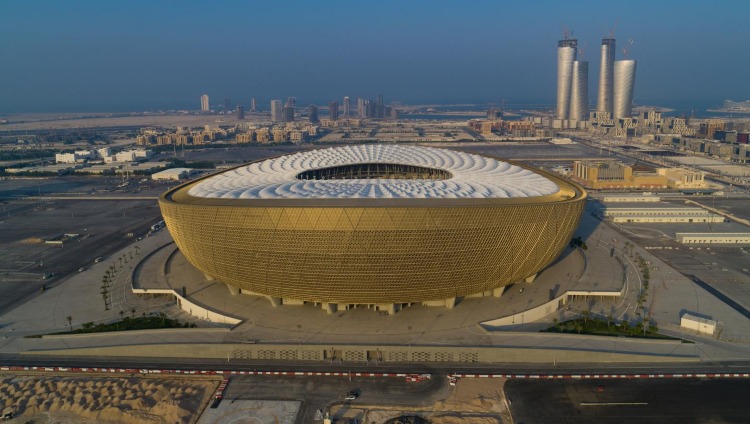by Mervat Mohsen
Belated Arabs celebrated a Moroccan win over Portugal, ushering in a new dawn for lesser teams who took on the greats at World Cup 2022. Despite the superhuman efforts by the Qatari government, showcasing high-end infrastructural reforms to host the World Cup, social media had opted for a smear campaign in an effort to mar the games with political and social issues. The games however moved on in a nation of approximately three million Qataris living in an area of 11, 437 kilometers squared, and, in time, shutting down the moaners. Soccer won the debate after all.
FIFA President, Gianni Infantino had praised the Qatari government for progress on migrant workers’ living conditions, dismissed the ban on alcohol, gender issues, and urged fans to remember football; Qatar certainly remembered. The Arab country employed over 26,000 people to build seven stadiums and hotels to host over one million fans. It spent 300 billion dollars over twelve years since it took on Ecuador to prepare for the tournament.

In fact, the entire region was targeting the world of sports, a fan-fed venue, to embrace the exponential numbers of young, vibrant people. Along with its neighbors, Qatar signed on four Formula 1 races due next year, while Saudi Arabia supported the golf arena, by backing the LIV tour. Meanwhile, revenues from the World Cup were expected to exceed the 5.4 billion dollars generated from the Russian World Cup in 2018.
Since the Saudi’s shocking 2-1 win over Argentina, Arabs became more attentive to the games as if that were possible. With the Moroccan win over Portugal, the streets became more jubilant from Qatar to New York where fans closed streets to boisterous merriments. It was an Arab win on all counts. Qatar being the first nation to host the World Cup, the Moroccans were the first African team to reach the World Cup semifinals and Saudi Arabia cut a name for itself, although its team did make it to a round of 16 in 1994.

The moment of Arab unity was perhaps a reminder of an earlier get-together of Arabs by late singer Om Kolthoum who belted out songs in the sixties that made Arabs listen at synchronized times the world over. Her voice resoundingly united Middle Easterns, yearning for a fairytale in a faraway home when she sang, switching on radios which aired her concerts live from Egypt. Sometimes the singing lady had traveled to meet the fans who huddled in coffee shops to watch the black and white television screens in Paris to listen, their togetherness was infectious.
One cannot say in this situation that it took little to make people happy. It took much from a dedicated Qatari government and a number of less-known teams who had nothing to lose, nor did they shrink in awe against the aging generation of football giants. Teams like the Saudis, the Japanese, to a point, and the Moroccans simply played ball, getting down to basics and keeping their eyes where they should be, on the ball.
WE SAID THIS: Don’t Miss…Morocco Makes History Again As First Ever Arab & African Nation To Reach World Cup Semi-Finals



